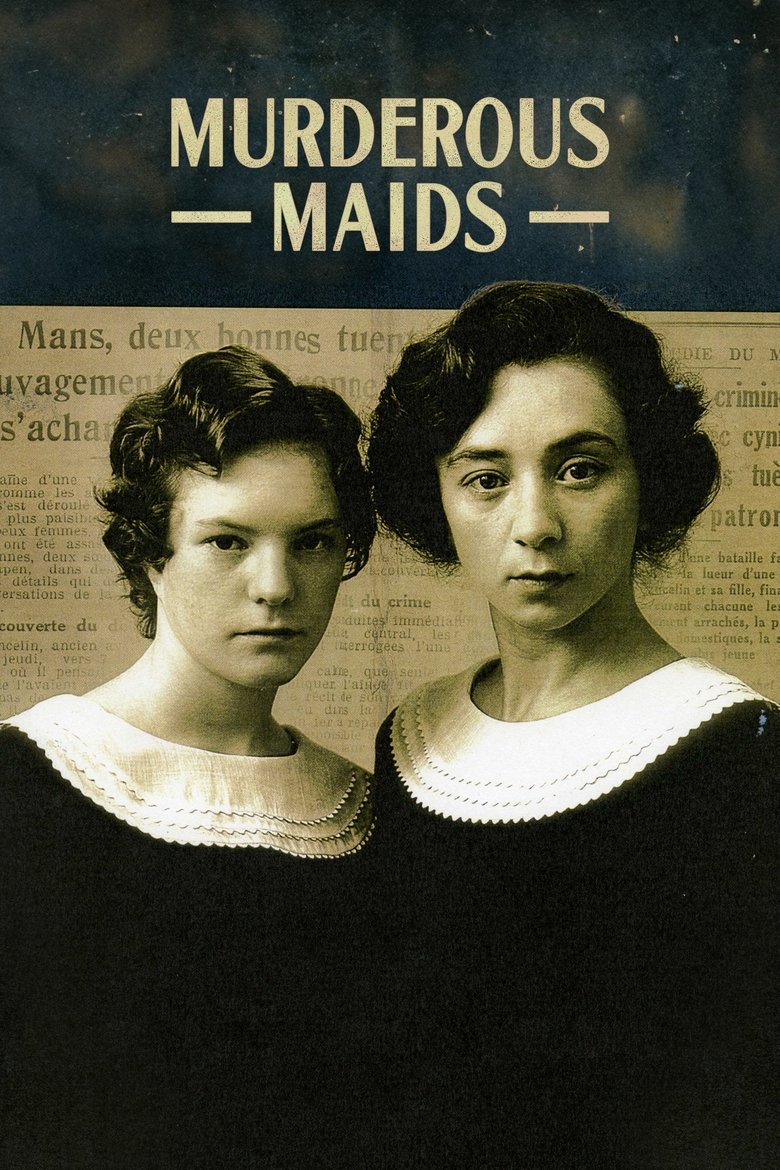
Murderous Maids
Based on the true story of two chambermaids of 1930s France who murdered their employer and her daughter.

Based on the true story of two chambermaids of 1930s France who murdered their employer and her daughter.
Just as the mystery of Jack the Ripper continues to grip the English imagination, the case of the Papin sisters of Le Mans — two maids who, in 1933, brutally slaughtered their employer and her daughter — holds a peculiar sway over the French. Jean Genet used the ghastly events as the basis for his celebrated one-act play "The Maids," while the cream of France's intelligentsia, from Jean-Paul Sartre and Simone de Beauvoir to Jacques Lacan, have searched for answers to the questions raised by the Papins' bizarre crime. Jean-Pierre Denis's scorching film — one of the most harrowing true-crime dramas since IN COLD BLOOD — is the latest treatment of the subject, and it's one of the most thorough. Based on the minutes of the sensational trial, selected first-hand accounts and Paulette Houdyer's authoritative book, L'Affaire Papin, the film touches on all the aspects of the case that continue to make it such a fascinating subject: forbidden sexuality, psychosis, class resentment, familial discord, gender oppression, and a tragic case of folie à deux that ended in 30 minutes of sheer savagery. Bringing it all to life is a devastating performance by Sylvie Testud as the high-strung, psychotic Christine Papin, one of four daughters born in poverty to a difficult mother and a hard-drinking, sexually abusive father. Reunited with her younger, far more impressionable sister, Lea (Julie-Marie Parmentier), after childhoods spent in separate orphanages or with relatives, Christine is pressed into service as a housemaid for various bourgeois families. When possible, Christine persuaded her employers to hire Lea as well. Consumed by paranoid delusions, Christine begins to unravel. She's certain that her hated mother is conspiring to take Lea away, her increasingly unhealthy attachment to Lea becomes carnal, and the deep-seated resentment she feels towards their latest employer, Madame Lancelin (Dominque Labourier), begins to chafe and then fester. Christine becomes a walking time bomb that finally explodes in a display of appalling violence. Thanks to Testud's tightly controlled performance, Christine's psychic collapse is just as frightening as the crime she and Lea commit, and Denis does little to cushion viewers from the horror; he doesn't even provide a musical soundtrack. Nearly 75 years after the fact, the matter still hasn't given up all its secrets, but Denis's film comes close to a definitive, deeply disturbing account.